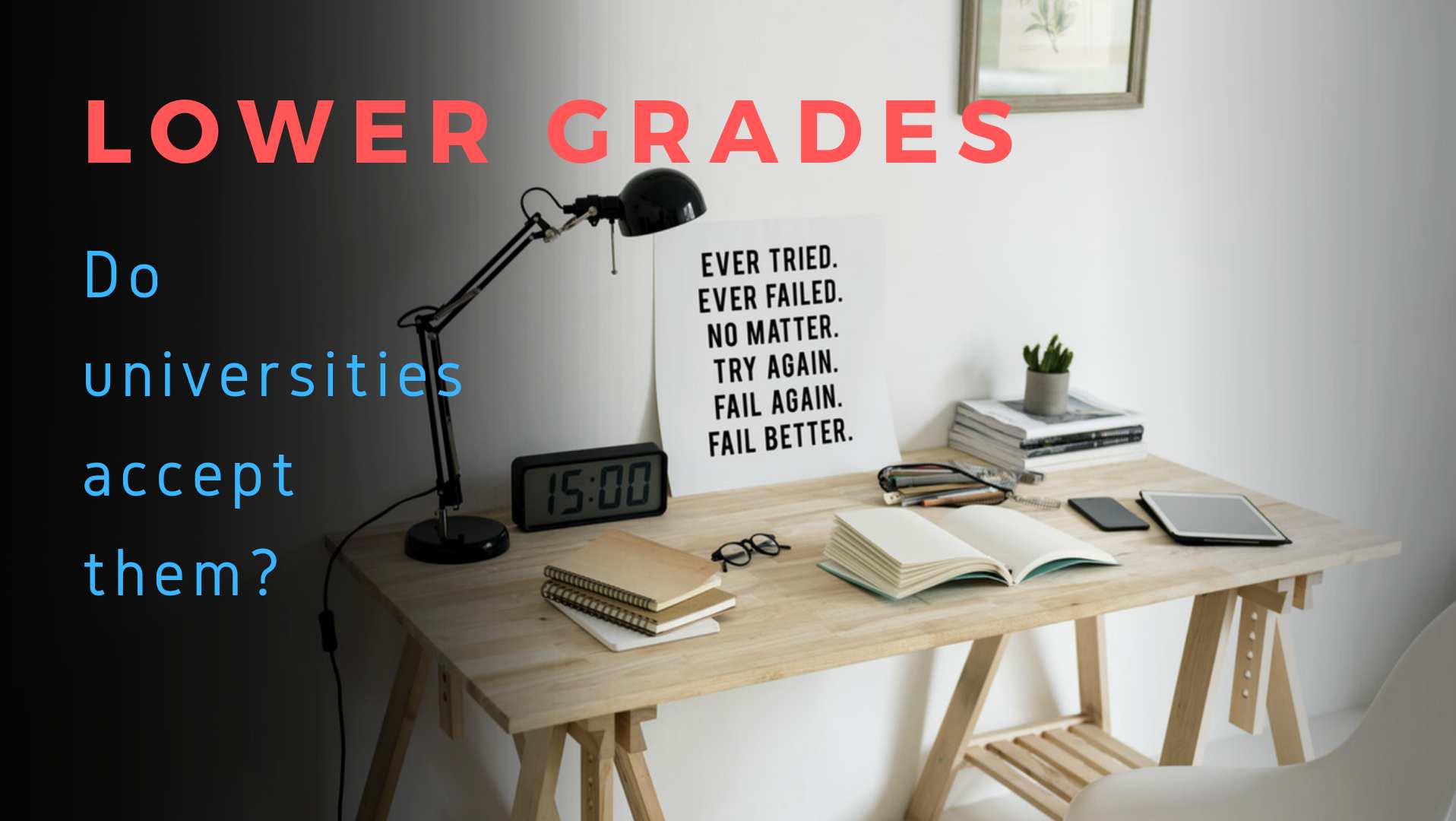Contents
Entry requirements are set by every university and course to help pick the students who are mostly likely to succeed at their chosen subject. But is this a hard rule and do universities accept lower grades?
While you should always strive to achieve the highest grades possible there is more to application success than strong academic results.
We have compiled a list of factors taken into account during your application, with some luck these can offset any lack of required grades.
Alternative University Requirements
Does ABB mean ABB?
Well, yes and no.
For some courses this could mean that A*BC is not allowed. Or it could mean you need to reach an equivalent amount of UCAS points.
Even if you get you ABB, applying to sciences with ABB in humanities subjects is not likely to be successful.
Go over the core subject requirements, some require a named subject like chemistry and others allow 1 humanities, 1 language etc.
At Acrosophy we recommend not counting General Studies as some universities do not accept it or count the UCAS points. To a lesser degree media studies also falls within this bracket.
GCSEs are often forgotten about but they can matter. Competitive courses will expect their applicants to have at leasts Cs or 4 / 5 in English and Maths.
Dynamic entry requirements are now being utilised by universities. Up until they actually send you an offer the expected grades can change at any time.
Don’t worry too much however as these changes are usually minor. If a change causes you to not meet the standard call the university before you panic and start going through clearing.
If your university has stipulated a certain number of UCAS points instead of grades then take a look at the chart below to convert from grades to points.

Do Universities Accept Lower Grades?
If universities let in a significant number of those not reaching the entry requirements this lets you know they are lenient when it comes to granting places.
2018 saw a drop in the number of school leavers applying to higher education.
This drop was caused by a low birth rate around 1999 onwards, meaning less 18 years old who could apply. UCAS however have highlighted in their end of cycle report that despite this 2018 was actually a great year to be applying to university.
Over 695,000 people applied to undergraduate courses in 2018 with around 533,000 being accepted. In fact this represents an undergraduate degree acceptance rate of 76.7%, the highest seen in a decade.
The majority of applicants apply through the main UCAS route where they are able to make five initial choices, followed by the opportunity to use other routes such as Extra, Clearing, or Adjustment, later in the cycle.
For UK domiciled main applicants, the acceptance rate climbed even higher, now sitting at 81.1%, meaning every 4 in 5 people gained a place.
University Applications: Positive Pressure
So do universities accept lower grades or not? The combined pressure of fewer 18 year olds and crumbling finances last year led many universities to accept more students whose grades were below par. This is very good news as just under 77% of applicants who went on to gain entry and university actually had lower grades than predicted!
The numbers are fairly surprising: Those students with DDD still had an 80% chance of getting a place. Gaining CCC instead brought your chances up to 84%. Ironically those who attained AAB or AAA had a tougher time of things.
Those applying in October vie for more competitive places such as Medicine, Oxford and Cambridge. Only 25% of these students managed to gain a place, compared with over 75% of January deadline applicants.
The high difficulty is compounded by the failure rate, meaning unsuccessful applicants apply the next year, further increasing the competition.
UCAS note that this trend is likely to continue.
Even though the number of UK 18 year olds decreased by 2% last year for the second year in a row the number of October deadline applicants increased by 7%.
Alternative Routes to University
In the past few years over 60% of students gained a place via clearing.
Clearing is a system whereby those who have been rejected by all 5 of their choices can look for a suitable alternative course on results day.
You should wake up early on results day as unis get your grades the day before. As soon as course spaces are put online they are given out on a first come first serve basis.
Call your preferred university and get someone on the phone.
Universities are well prepped for results day and are happy to take your call to discuss options. As you now know many places are given to students even if their grades are not quite on the mark so don’t discount a course before speaking to a member of staff.
Before you panic and make any drastic measures make sure you double check UCAS Track which will confirm if you are in clearing or not.

